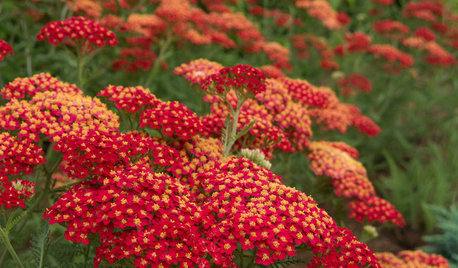Spraying Rhodies
molly2
17 years ago
Related Stories

GARDENING GUIDESTop 12 Summer-Blooming Perennials for Deer-Resistant Drama
Can you have garden color, fragrance and exciting foliage with hungry deer afoot? These beauties say yes
Full Story
GARDENING GUIDESNew Ways to Think About All That Mulch in the Garden
Before you go making a mountain out of a mulch hill, learn the facts about what your plants and soil really want
Full Story
DECORATING GUIDESShop Your Garden for Easy Holiday Decorations
Make your home merry and bright without all the stress and fuss — everything you need is in your own backyard
Full StorySponsored






Birdsong72
morz8 - Washington Coast
morz8 - Washington Coast
Birdsong72
rhodyman
dee_can1
rhodyman
dee_can1
rhodyman
molly2Original Author